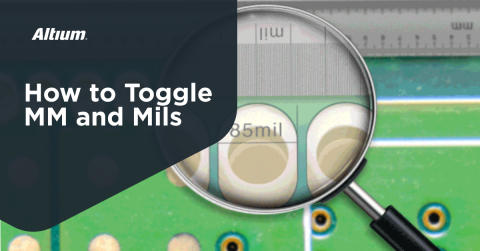The Challenges Of ECAD Library Management
Implementing a proper system for ECAD data management enhances team productivity and efficiency to help you deliver products on time and within budget. Read on to learn more.
Has the inability to properly manage your ECAD data set back your entire design process? This is often the case for many component engineers who need a reliable resource for managing their data lifecycle. Oftentimes, electronics are in the driver’s seat when it comes to new product features and functionalities. We interact with them every day in many forms that range from simple consumer electronics to advanced MRI machinery. In a world of electrification, being able to effectively manage your ECAD data lifecycle can mean the difference between success or failure.
While the potential for product failure always lingers, being able to efficiently manage and oversee your ECAD data shouldn’t be a concern. Unfortunately, poor data management often leads to inconsistency and increases your margin for error. This not only impacts the cost and quality of your products, but also takes a toll on the productivity, efficiency, and collaboration of your team.
Why Is Managing Your ECAD Data Important?
Without a proper component library and ECAD systems in place, managing your ECAD data can be a nightmare. Even the simplest of processes can inadvertently result in disaster. Whether it's a new component engineer or the owner of the company, unintentional mismanagement of your ECAD data is easy if you don’t have the right tools in place, and these oversights can lead to a number of unintended variables. Imagine the worst-case scenario - you just released a product and a crucial (but avoidable) error requires you to re-create a drop-in with all of the same parameters. You’re now forced to backtrack each step of your development process, update all documentation, get approval for the correction, and make any other necessary changes due to the revision. All of a sudden engineering doesn't sound like fun at all.
Considering everything that could go wrong, implementing a simple holistic strategy when managing your ECAD data should be a top priority with these goals in mind:
- Ensuring data consistency
- Simplifying new part request and creation
- Managing part lifecycles and revisions
- Eliminating duplicate
- Streamlining where-used of already approved
- Providing vendor-approved list visibility
- Integrating with existing tools
- Gaining user control access
- Sharing ECAD libraries globally
ECAD Data Management Cornerstones
Implementing an organized, easy-to-use system for streamlining your ECAD data management process can reduce the potential for error and help you deliver projects on time and within budget. Although there are other elements of managing ECAD data libraries, here are some noteworthy aspects that make this tool relevant:
- Data Consistency
- Lifecycle State Management
- Reuse
- Procurement Enforcement
Risk Mitigation and Minimizing Your Chances of a Supply Chain Breakdown
Having a fallback system in place that allows you to insert new into your design plan without having to redo the entire process is the kind of efficiency that designers want and need. If this were standard practice, engineers could avoid the headache that comes along with the revision and approval processes, and have confidence that their projects will be completed on time and within budget. Simply put, it’s all about risk mitigation which can have a trickle-down effect on the supplier evaluation process. While this may limit the development team’s vendor options, it ensures that your suppliers are properly accommodating your business needs.
Start Treating Your ECAD Data as an Asset
Improving your design process and component library lists can be challenging, especially when your objective is to reduce your margin for error without inhibiting your productive momentum. Trying to tackle your development process and track your data lifecycle without a structured plan will likely set you up for failure, but this doesn’t have to be the case. Treating your ECAD data as an asset will result in a much smoother, more efficient design process that will save you time (and money) in the long run.
Download our free white paper to learn how Altium Designer® can help ensure proper management of your ECAD data libraries.
Check out Altium Designer® in action...
Powerful PCB Design










